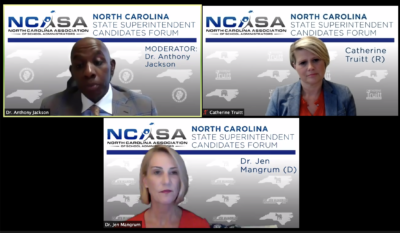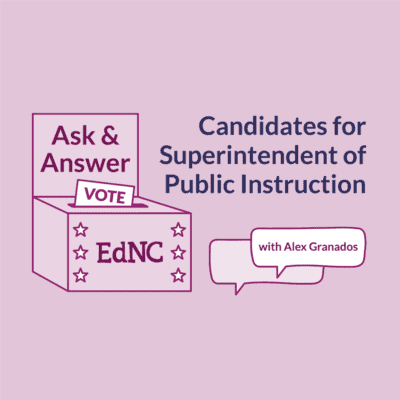
The 2020 general election on Nov. 3 is just weeks away, and important deadlines are fast-approaching. If you’re planning to vote in the 2020 election in North Carolina, this information is for you. You can jump around sections of this article using the menu to the left.
But first, a few important deadlines:
- Friday, Oct. 9: Deadline to register to vote
- Thursday, Oct. 15: Early voting begins (same-day voter registration available)
- Tuesday, Oct. 27: Deadline to request an absentee ballot
- Saturday, Oct. 31: Final day of early voting
- Tuesday, Nov. 3: Election Day
- Friday, Nov. 6 at 5 p.m.: Deadline for absentee ballot to be returned, must be postmarked on or before Nov. 3
Note: The information in this article was sourced from the North Carolina State Board of Elections (NC SBE).
Registering to vote in North Carolina
The deadline to register to vote for the 2020 general election is Friday, Oct. 9. Voters who miss this deadline can also register in-person at an early voting site from Oct. 15 to Oct. 31 — more on that in the early voting section below.
Who can register to vote?
According to the NC State Board of Elections website, to register to vote in North Carolina, you must:
- Be a U.S. citizen (citizenship documents are not required to register)
- Live in the county where you are registering, and have resided there for at least 30 days prior to the date of the election
- Be at least 18 years old, or will be by the date of the general election
- Not be serving a sentence for a felony conviction, including probation, parole, or post-release supervision
Note: Inactive voters are still registered voters. A voter who is inactive status will be asked to confirm their addresses when they appear to vote. No special document is required.
How to register to vote
There are two primary ways to apply for voter registration:
- Fill out the North Carolina voter registration application (Spanish version) and submit it via mail or deliver it in person to your county board of elections.
- If you’re an existing North Carolina Department of Motor Vehicles customer, you can submit your voter registration online. If you’re a new DMV customer, you can also select the option to register to vote while applying for a vehicle license or ID.
Check your voter registration
Once your voter registration has been processed, you will appear as a registered voter in the North Carolina State Board of Election’s voter search tool.
Just enter you first and last name and make sure the “Registered” box is checked. You can narrow your search by adding the county that you registered in. Your record will display publicly available information like your voter registration status, your Election Day polling place, a sample ballot for the election, and the past elections you participated in.
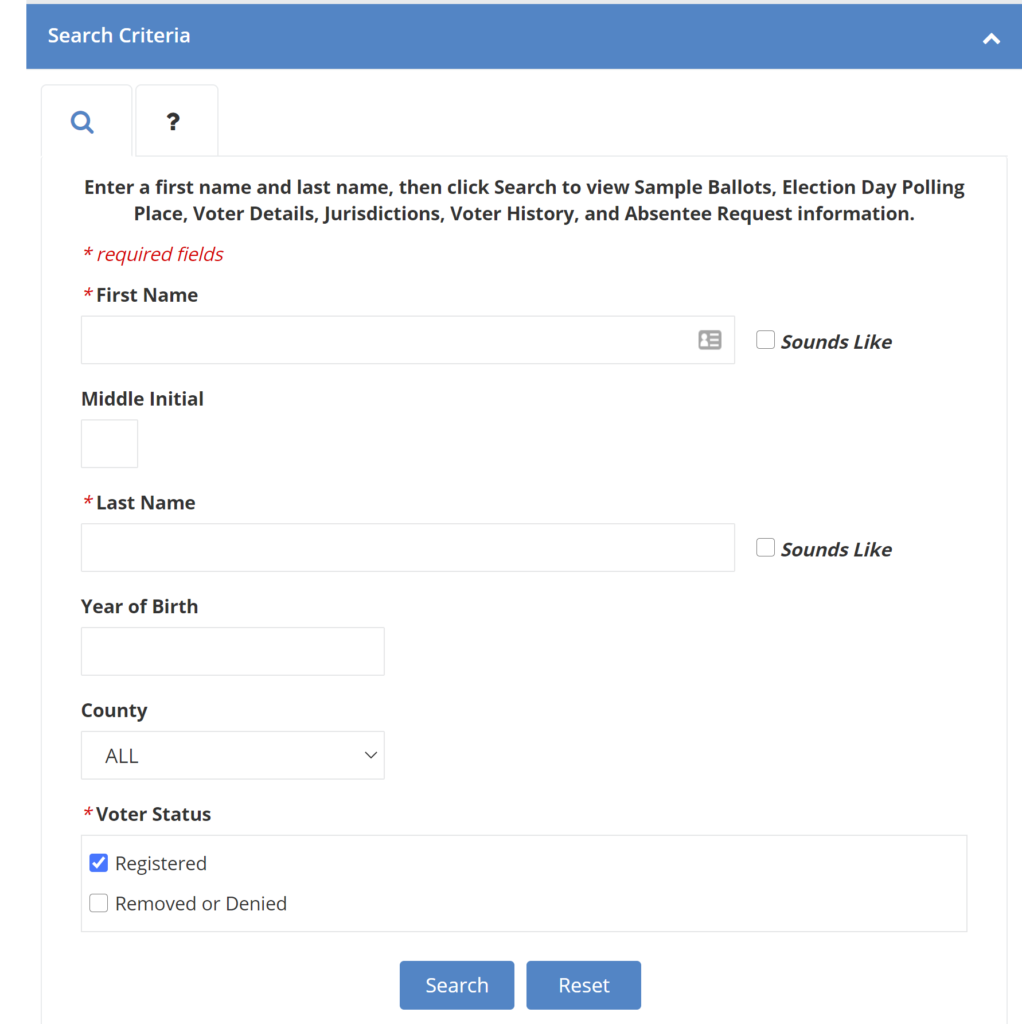
Vote by mail
Requesting your absentee ballot
All registered voters can request their absentee ballot online using this portal. The request may be made by the voter or their near relative or legal guardian. Voters can also opt to print out the form, sign it, and then email, fax, mail, or return the form in person to their county board of elections.
The deadline to submit a request for the Nov. 3 general election is 5 p.m. on Tuesday, October 27, but voters are strongly encouraged to request their absentee ballot as soon as possible due to postal delays.
Once your ballot has arrived, you’ll need to fill it out in the presence of a witness. Place your ballot in the return envelope, and sign the outside of the envelope. Then, have your witness complete and sign the witness certification on the return envelope.
Click here for answers to vote-by-mail FAQs.
Returning your absentee ballot
Your absentee ballot must be returned to your county board of elections no later than 5 p.m. on Nov. 3. Absentee ballots received after 5 p.m. on Election Day will be counted only if they are postmarked on or before Election Day and received by mail no later than 5 p.m. on Nov. 6.
According to the NC SBE, there are a few ways to return your absentee ballot in 2020. Note that only the voter or the voter’s near relative or legal guardian may possess the ballot to return it to the board of elections.
- By mail to your county board of elections, postmarked on or before Election Day, and received by 5 p.m. on Nov. 6
- By commercial courier service (DHL, FedEx, or UPS)
- Dropped off in person at your county board of elections office by 5 p.m. Election Day (Nov. 3)
- Dropped off in person at any early voting site in your county during voting hours
Tracking your absentee ballot
Once you’ve requested an absentee ballot, you can use a free system — BallotTrax — to receive updates about the status of your ballot every step of the way, from when it’s mailed to you to when it’s received by your local board of elections. To get started, you’ll have to register by providing your name, date of birth, and zip code. Then, you can log in to view the status of your absentee by-mail request and ballot.
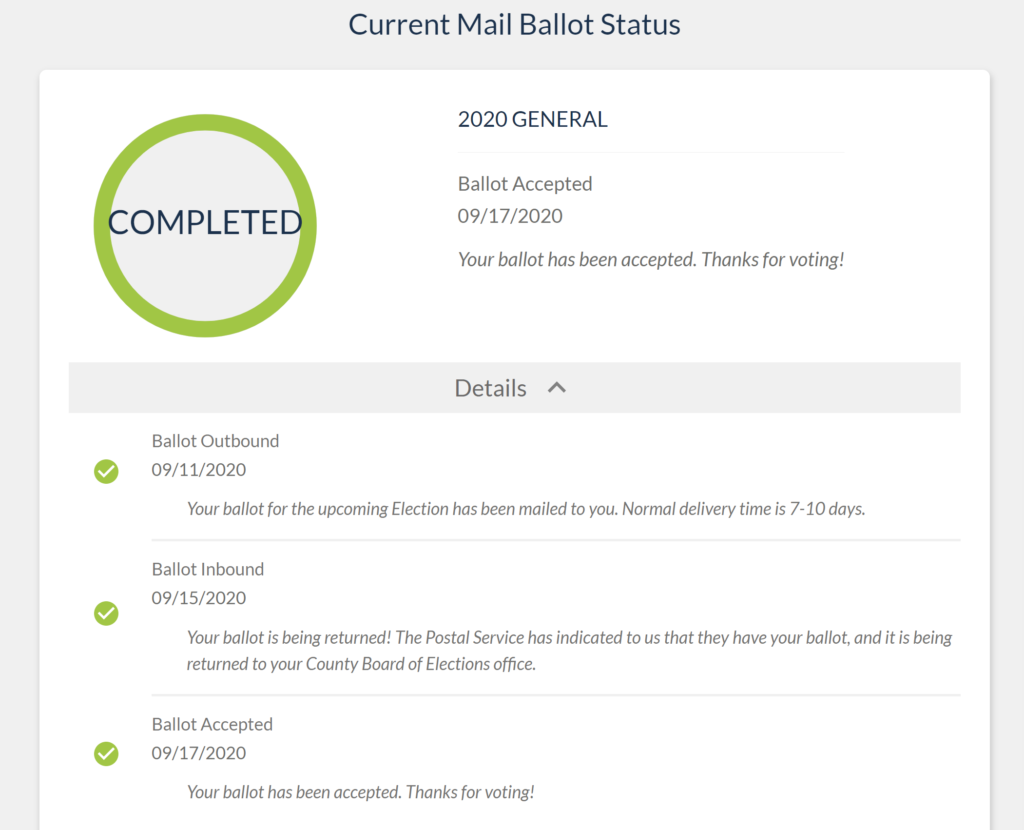
Available information includes: confirmation that the county board of elections has received the request, that the ballot has been mailed to the voter, and that the completed ballot has been received by the county board of elections. You can also learn if your ballot cannot be accepted because of issues such as a missing signature or witness information. If this occurs, the county board of elections will provide information to the voter on how to correct the issue.
BallotTrax also offers the option for email, text, and/or voice alerts for status updates.
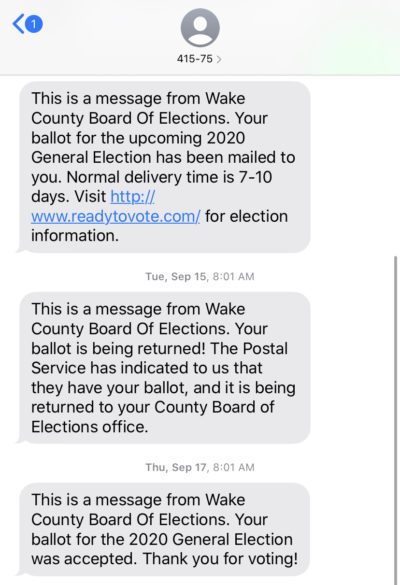
Early voting
The in-person early voting period begins Oct. 15 and runs through Oct. 31. During early voting, you can cast a ballot at any early voting site in your county — that’s different than Election Day, when you have to cast a ballot at your assigned precinct. Click here to see the one-stop early voting sites for your county.
When you check in at an early voting site, you can change your name and address within the county if needed.
You can also register to vote at early voting sites and then immediately cast your vote — a process called same-day registration. In this case, you would fill out a voter registration application and provide proof of where you live, such as a North Carolina driver’s license, a government-issued photo ID with current address, a utility bill, a bank statement, or a college/university ID card paired with proof of campus habitation.
Vote on Election Day
On Election Day — Tuesday, Nov. 3 — polling places will be open from 6:30 a.m. – 7:30 p.m. If you’re in line by 7:30 p.m., you’ll be able to vote. If you can, try to avoid voting early in the morning or just before polls close, as lines tend to be longest then.
On Election Day, you must vote at your assigned precinct. You can find your polling place and sample ballot by entering your address here, or you can use the voter search tool to see your assigned polling place.
A few other facts about voting on Election Day:
- Same-day registration is not available on Election Day
- Voters are not required to show ID to vote
- Due to COVID-19, masks and hand sanitizer will be provided to all voters, and social distancing will be enforced
Read answers to FAQs about Election Day from the NC SBE.
COVID-19 considerations
According to NC SBE, precautions will be taken at voting sites to protect voters and election officials against COVID-19. These include:
- Enforcing social distancing at polling places and early voting sites
- Providing hand sanitizer and masks for voters and election workers who do not bring their own
- Providing gloves and face shields for election workers
- Erecting barriers between election workers and voters at check-in tables
- Providing single-use pens in counties that use hand-marked paper ballots and Q-tips for voters who use ballot-marking devices
- Frequently cleaning surfaces and equipment in polling places and early voting sites
- Recruiting poll workers who are less vulnerable to the virus
Click here for 10 facts about voting in North Carolina amid the pandemic.
High school teachers: Are you interested in offering a school-wide mock election for your students? First Vote NC, an initiative of EdNC, offers a free online election platform to help teachers bridge the gap between what students are learning in civics class and how they translate that information into meaningful application in the real world.
Learn more by watching the video below and sign up by clicking here. Registration closes on Oct. 5.


